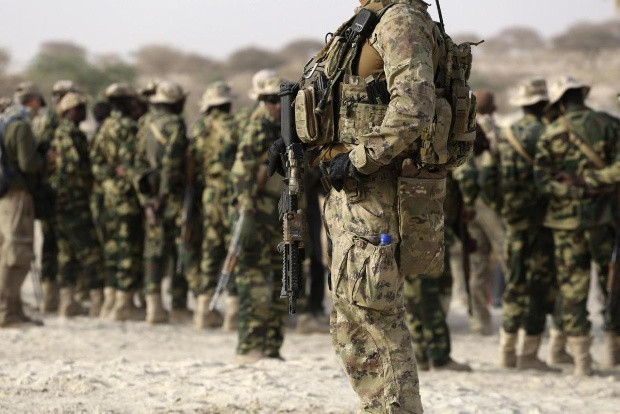Begin typing your search...
Getting priorities right: National security set for a post-virus revamp
While global arms expenditures have been rising annually, many militaries have been caught off guard by the COVID-19 pandemic. Will governments start to reframe their security agendas?

Chennai
The US military is well-equipped to repel conventional threats, but it’s certainly not up to the task of containing biological hazards like the coronavirus pandemic, according to Christopher Preble of the Cato Institute, a Washington based libertarian think tank. Neither the US military nor the Navy are safe from the pathogen, as a recent outbreak aboard the USS Theodore Roosevelt aircraft carrier, with its crew of 5,000, made clear.
As the outbreak continues to spread in the US, the healthcare infrastructure in many states is unable to cope. “Americans are now warming to the idea of investing more in the healthcare system,” Preble, Cato’s VP for defense and foreign policy studies said. He believes this attitude could change once the pandemic passes. It is not just in the US where military preparedness for pathogens is seen as limited. Russian defense expert Alexander Golz believes his country’s leadership is not taking adequate measures to counter the outbreak. “Generals are always preparing to fight the wars of the past,” he said.
Golz, deputy editor-in-chief of the Ezhednevny Zhurnal online platform, said President Vladimir Putin met with representatives of the military-industrial complex when the pandemic first hit Russia. They expected Putin would “discuss ways to reorganise the economy to ramp up the production of drugs, protective clothing and face masks,” he said. But, to his surprise, the focus instead was on how the production and export of arms could be ensured.
However, the coronavirus pandemic may help shift the framework of military thinking. Joe Biden, Donald Trump’s presumed Democratic rival in the November US presidential election, has announced plans to create a special cabinet post to focus on the threats posed by pandemics and climate issues, should he be elected. Chris Murphy, a Democratic Senator from Connecticut, told the German Marshall Fund (GMF) that the US must redefine its security agenda and consider pandemics, climate change and environmental damage as serious security threats.
Speaking with the GMF podcast mini-series “Post-Pandemic Order,” he backed the idea of a new defense budget with different priorities, simply because “there are other agencies besides the Department of Defense that protect this country.” “The crisis we are experiencing now is a watershed moment — also for our understanding of our security policies,” said Ulrich Schlie, a professor of security and strategy studies at the University of Bonn. Schlie, who for years headed the planning division of Germany’s Defense Ministry, said it was time to adapt a “broader notion of security” that goes beyond typical military considerations and arms spending.
Countries should plan for a variety of security threats, including pandemics, migration-related challenges and other phenomena, alongside “funds for conventional armies.” He urged EU member states to coordinate more closely when to comes to security affairs. Schlie did not recommend spending less on conventional defense capabilities to free up resources for other threats, pointing out that one “should not play one off against the other.” He stressed that NATO should remain viable, and said that in order to meet the danger of pandemics and other non-military threats NATO members on both sides of the Atlantic should increase their overall spending.
— The writer is a reporter with Deutsche Welle
Visit news.dtnext.in to explore our interactive epaper!
Download the DT Next app for more exciting features!
Click here for iOS
Click here for Android
Next Story



